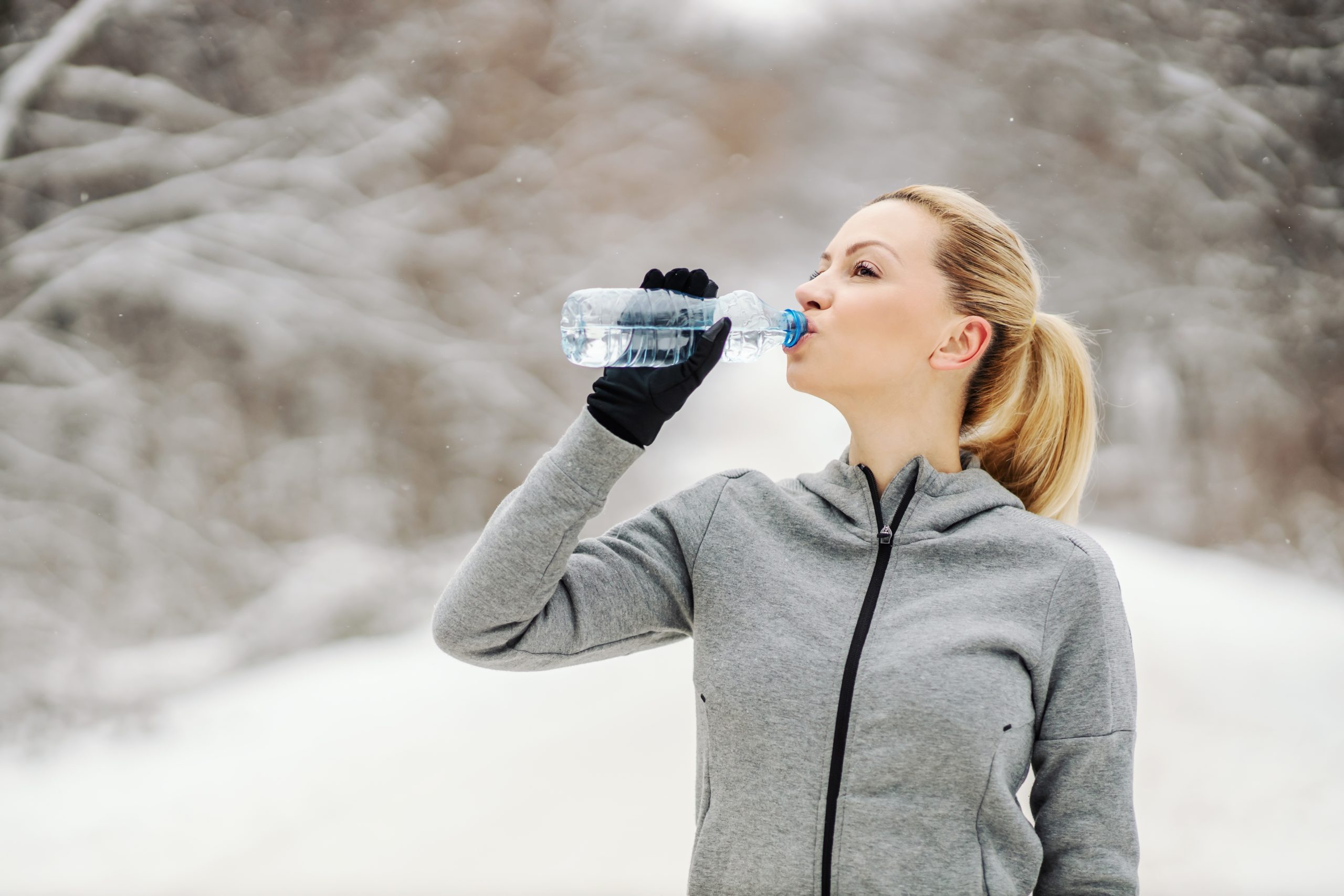Hydration in Winter: Dietitian Becca Blumberg Breaks Down the Basics.
Hydration is an important part of our day-to-day lives. How we approach hydration during a workout or a race can make or break our runs and the recovery process. Luckily, dietitian Becca Blumberg is here to help with a short and comprehensive guide to winter hydration.
Written by Becca Blumberg
Edited by Pavlína Marek
Step 1: Notice Dehydration
Dehydration is harder to notice in winter because cold temperatures suppress thirst sensation (and make a cold glass of water much less appealing). On top of that, exercising in heated indoor spaces, either at home or at the gym, can lead you to lose more water than you might outdoors. Therefore, hydration is just as important during the winter months as it is in the summer.
How do you know if you’re dehydrated? What are the symptoms of dehydration? Fatigue and headaches are the big two. Dark urine is also a good tell-tale sign.
Step 2: Drink Enough
What is enough? It’s fairly simple; if your urine is a pale yellow color, you’re drinking enough. The general target is 64 or more ounces, the more specific one is half your body weight in ounces. (For example, a 150-pound person would aim for 75 ounces of water.)
How to Drink Enough
It can be challenging to stay hydrated any time of year, let alone now. Continue to follow the same plan that you might have in the summer. Here are a few winter-specific tips to help you stay on top of your hydration.
- If you have a favorite mug, cup, or bottle, keep it filled and nearby.
- Drink water with meals and snacks so that you remember.
- If you’re doing a long indoor session on the dreadmill, follow the same hydration plan you would for that same workout outdoors.
- When you’re exercising outdoors, set reminders to drink on your watch because you may not notice your thirst like you do in the summer.
- A warm drink is always welcome after a cold run. You may find that changing to a warm drink, like decaf or herbal tea, can help make staying hydrated more appealing, especially on the coldest days. Hot chocolate (made with milk) does double duty; it acts as a hydration and recovery snack!
Step 3: Notice the Benefits
Enjoying all those benefits of proper hydration is especially important in the winter. Adequate hydration helps keep your skin, lips, and throat from getting dry and irritated. As water is also is a key component of your blood, being well-hydrated also helps your immune cells get to where they need to be to fight off colds, flu, and other nasty bugs.
Lack of sunlight tends to bring us all down in the winter. Adequate hydration can also help support your mood. It may do so by triggering the release of endorphins—yes, the same neurotransmitters responsible for a runner’s high!


